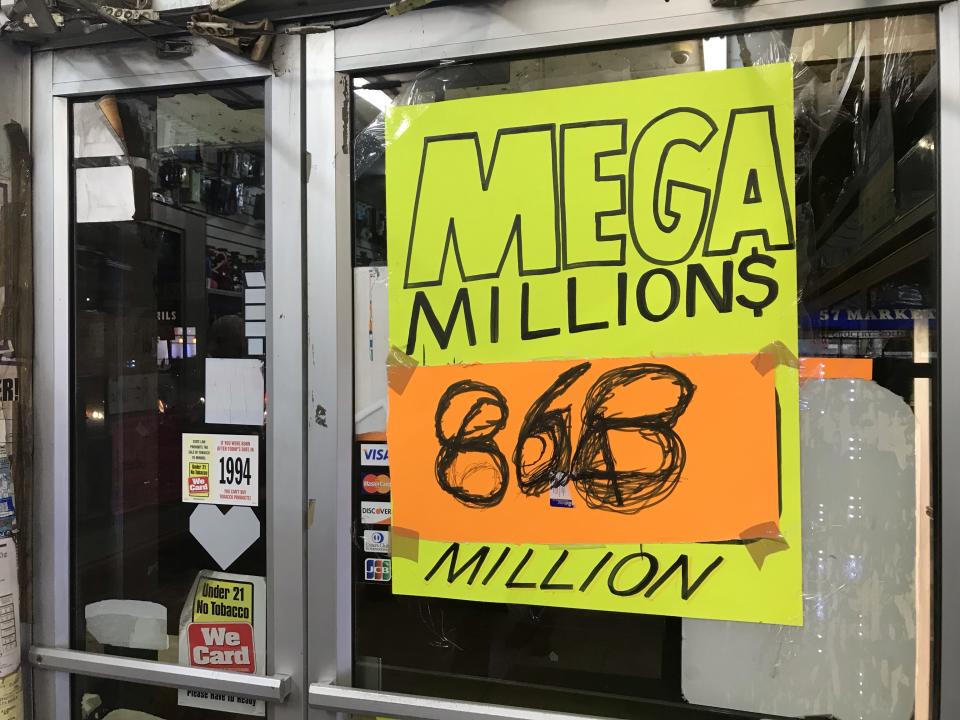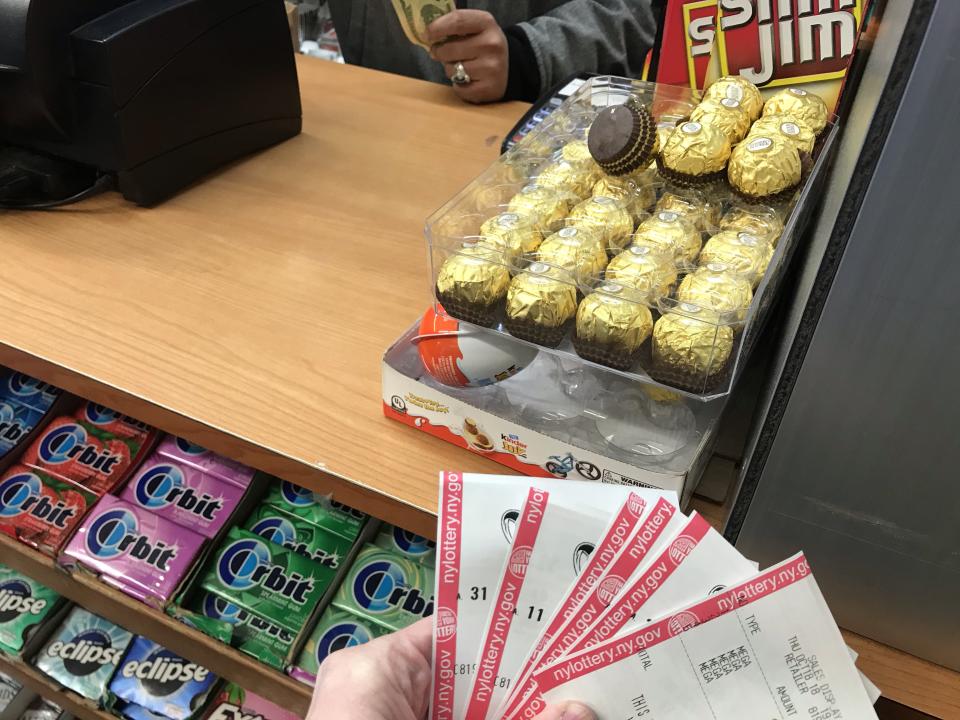Winning the Mega Millions is sweeter in some states than others

The world could add its newest billionaire on Friday night when the winning Mega Millions numbers are drawn for the second-largest lottery in U.S. history.
On Friday afternoon, the jackpot topped $1 billion from $970 million earlier in the day.
Truth be told, the lucky winner is likely to enjoy billionaire status for a fraction of time, before states and the federal government exert their own rules over the not-so-hard-earned cash.
Some states don’t tax lotto winners, others have no income tax
However, the good fortune of a lottery win can taste sweeter for winning ticket holders who live in certain states. Depending on where a winner claims residence, and to a lesser extent where they buy the ticket, they could hold on to significantly more prize money.

California, Florida, New Hampshire, Pennsylvania, Washington and Wyoming have decided to forgo taxing resident lottery winnings, altogether. In some cases for that no-tax rule to apply the ticket must have been purchased in the winner’s home state. States and cities that do not collect income tax — Alaska, Florida, Nevada, New Hampshire, South Dakota, Tennessee, Texas, Washington and Wyoming — also leave more prize money on the winner’s table.
Of course, no jackpot victor can escape Uncle Sam. Winners in all states are required to hand over 25% of prize money, upfront. Come tax time, the Internal Revenue Service comes knocking again — requiring winners to make up the difference between their upfront payment and their top tier tax bracket of 39.6%.
Privacy for lotto winners varies by state, too.
In most states winners must disclose their identity, though the issue remains unsettled in jurisdictions across the country.
Take New Hampshire, where a court in March decided a mega-jackpot winner could keep her name and image private, after she failed to sign the name of her trust on the back of her winning ticket. By instead signing her own name, the Attorney General argued, her name became part of a public document. However, a judge ruled that only the woman’s hometown could be released to the public because of her “strong privacy interest.”
By law, most states consider a winner’s identity public record, though Delaware, Kansas, Maryland, North Dakota, Ohio, South Dakota and Texas allow complete anonymity.
The argument for anonymity is backed strongly by safety concerns. A quick internet search is all it takes to generate a long list of jumbo jackpot winners threatened, assaulted and even killed by attackers looking for a piece of their fortune.
New York’s state senate passed a bill in June that if signed into law would permit state lottery winners to remain anonymous to the general public. Other states allow lottery winners to stay anonymous under certain circumstances, including Georgia and South Carolina.
What should you do if you win big?
Get a good lawyer. And an accountant. And follow the rules.
Every state has an age requirement for purchasing lottery tickets. Most states set the minimum age at 18. Nebraska requires purchasers to be at least 19 years old. In Arizona, Louisiana and Iowa buyers must be 21.
Mega Millions tickets do expire, and expiration dates vary by state. Florida, for example, says winnings must be claimed within 180 days.
If you’re lucky enough to hit it big, you can even pass down lottery winnings to your heirs. That’s generally true whether you choose a reduced lump sum payout, or yearly annuity payments of the full jackpot amount over 29 to 30 years.
Best practice is to consult and understand state laws both where you live, as well as where you purchased your ticket.
Ticket sales for the Mega Millions jackpot close at 10 p.m. Eastern Time. The drawing takes place an hour later at 11 p.m. Eastern.
Mega Millions isn’t the only closely watched prize. A separate Powerball lottery, to be drawn Saturday, has swelled to $470 million.
Alexis Keenan is a reporter for Yahoo Finance.
Read more:
Big Pharma: Trump rule mandating drug prices in TV ads might be unconstitutional
Here’s how eBay alleges Amazon illegally lured its ‘high-value’ sellers

 Yahoo Finance
Yahoo Finance 